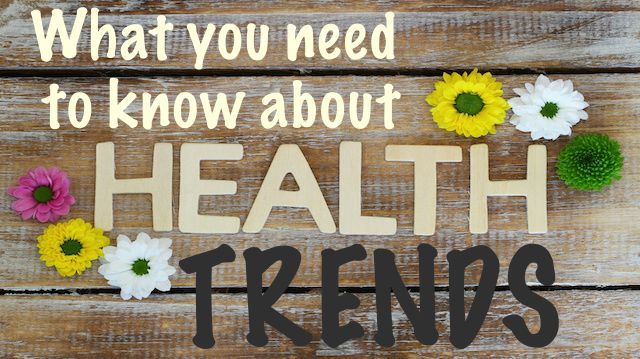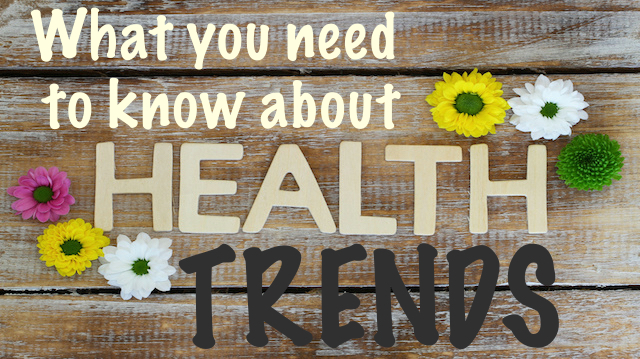
Trends come and go in the medical community. In the 1950s, many doctors recommended eating pure lard; can you imagine a doctor advising that to a modern patient? As new studies come out, we learn more about how the human body works. We develop a better understanding of what to eat and how to eat it to maintain healthy bodies for life. Explore what the latest health discoveries tell us about how to eat healthily:
Skip the sugar
Fat used to be the demon of a healthy diet, however, recent research has found that sugar may actually be the true danger. It seems to be one of the primary factors contributing to the increase of cancer, heart disease and diabetes in the modern world.
According to studies, sugar intake may increase the risk for developing cancer. In a study from 1993 published in the International Journal of Epidemiology, it was found that a high sugar diet was directly related to an increased risk for the development and spread of biliary tract cancer. Other studies since have supported this idea as it relates to various cancers.
Research has also found that although the body converts most foods into sugar, the wrong kind of sugar causes the body to go into fat storage overload. The intake of processed sugars causes insulin levels to rise particularly quickly without the stabilizing effects of fiber and other nutrients that accompany the sugar found in natural sources like fruit. This insulin reaction encourages weight gain, insulin resistance, and eventually type 2 diabetes.
The American Heart Association suggests that women eat no more than 24 grams (six teaspoons) of sugar daily and men eat no more than 36 grams (nine teaspoons) per day. This suggestion is based on the amount of sugar that your body can safely handle in a day without going into stress mode. All sources of sugar contribute toward this limit, including fruit juice, whole fruits, sweeteners of any kind and added sugars in traditionally non-sweet foods. If you eat a variety of processed foods or sweetened beverages, it is incredibly easy to go way over the recommended sugar intake for a day. Just one 12-ounce soda, for example, has between 30 and 40 grams of sugar, which is more than the recommended amount for women and just about all the sugar that a man should consume in a day.
Avoid artificial sweeteners
For many years, artificial sweeteners were seen as a harmless way to enjoy sweets without damaging side effects. However, recent studies have indicated that artificial sweeteners may not be so healthy after all. A 2014 study published in the journal Nature found that artificial sweeteners trigger bacteria in the gut, which disrupt the ability to regulate sugar and may actually encourage the body to produce more sugar.
Don’t worry about cholesterol
Every five years, the Office of Disease Prevention and Health Promotion publishes a new set of dietary guidelines. This year, in a groundbreaking change, the guidelines are no longer recommending the regulation of cholesterol consumption. The new guidelines state, “Cholesterol is not considered a nutrient of concern for overconsumption.” Recent studies have found that when you eat cholesterol, your body responds by making less. This is a form of cholesterol self-regulation that was previously unknown. New studies have found that dietary cholesterol is not what causes cholesterol levels to rise. Rather, a poor diet and chronic inflammation damages the blood vessels and causes cholesterol deposits to form.
Fat is back (but the right kind is important)
For decades, nutritionists recommended cutting down on fat in an effort to be healthy. But recent studies have found that consuming the right kind of fat is extremely important for our overall health. Unfortunately, we get far too many of the unhealthy fats, which is why all fats were mislabeled as bad. The biggest health risk comes from trans fats, the most common of which is now banned by the FDA to be removed from products by 2019. The body cannot process trans fats and instead they cause weight gain, inflammation and high cholesterol. Omega-6 fats, found in vegetable oils, are necessary in small amounts, but most Americans get far too many omega-6 fats in their diet, leading to a fat imbalance in the body. Ideally, we should eat more omega-3 fats than omega-6 fats to curb inflammation (omega-6 fats encourage inflammation and omega-3 fats fight inflammation). You can find omega-3 fats readily in select foods such as fish, seafood, walnuts, chia seeds and flaxseeds.
Red meat is still out
 You’ve probably heard that red meat is bad for your health. Current dietary guidelines still support this idea. In 2005, a large study of over 400,000 people in Europe was conducted to determine if red meat could have an effect on a person’s health risk. The study authors found that individuals who ate the highest amount of red meat (five ounces or more per day) had an increased risk of developing colon cancer of about 33 percent. The 2015 dietary guidelines recommend reducing red meat intake for this reason.
You’ve probably heard that red meat is bad for your health. Current dietary guidelines still support this idea. In 2005, a large study of over 400,000 people in Europe was conducted to determine if red meat could have an effect on a person’s health risk. The study authors found that individuals who ate the highest amount of red meat (five ounces or more per day) had an increased risk of developing colon cancer of about 33 percent. The 2015 dietary guidelines recommend reducing red meat intake for this reason.
However, some evidence suggests that cancer risk is reduced when sustainably-raised meat is eaten rather than conventionally-raised meat. A 2010 review of grass-fed beef, published in Nutrition Journal, found that grass-fed beef contains higher antioxidant levels (which could counteract the cancer-causing effects of the meat) and also contains a surprising amount of inflammation-fighting omega-3 fats, which conventional meat does not.
Regardless of whether you eat grass-fed or conventional beef, you are still better off if you limit your red meat consumption to two or three times a week.
Stop the smoothies
For several years, nutrition-packed smoothies were all the rage in the health community. But recent research into sugar has found that drinking large portions of smoothies may be nearly as bad for you as drinking soda. When fiber is removed from vegetables and fruit, the sugar hits the body faster. The high sugar content is shocking to your system, which will encourage insulin resistance and weight gain just like any other sugary beverage. Additionally, you would never sit down and eat a dozen apples at once, but it is easy to drink that much in a smoothie. If you are still determined to enjoy smoothies, limit the number of sweet items per smoothie and don’t drink more than one a day.
If you make these simple changes, you will be well on the way toward a happier, healthier you. To implement the new health guidelines, try limiting dessert to once a week, cutting out soda, eating fish one or two times a week, and reducing your intake of vegetable oils. You may be surprised at how much better you feel.
—The Alternative Daily
Sources:
http://www.ncbi.nlm.nih.gov/pubmed/8505175
http://www.heart.org/HEARTORG/GettingHealthy/NutritionCenter/HealthyEating/Added-Sugars_UCM_305858_Article.jsp
http://www.nature.com/nature/journal/v514/n7521/full/nature13793.html
http://health.gov/dietaryguidelines/2015-scientific-report
http://www.fda.gov/NewsEvents/Newsroom/PressAnnouncements/ucm451237.htm
http://www.ncbi.nlm.nih.gov/pubmed/15956652
http://www.nutritionj.com/content/pdf/1475-2891-9-10.pdf
http://www.ncbi.nlm.nih.gov/pubmed/17579632

